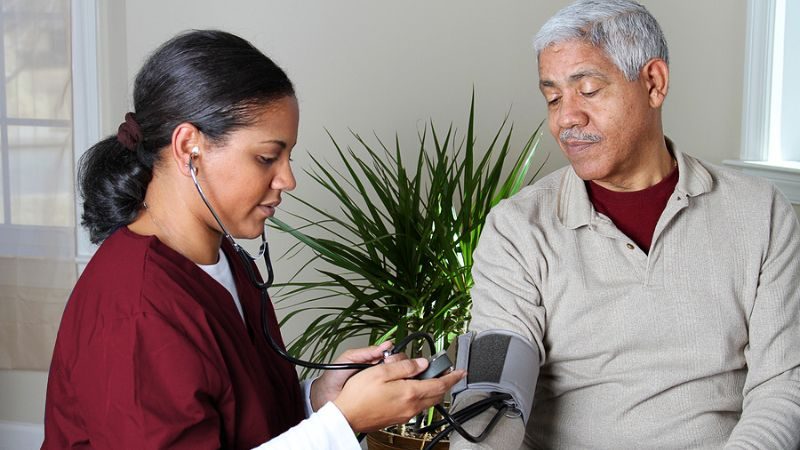Caring for diverse populations in a hospice setting involves cultural sensitivity. For companies like Amore Hospice Care in Las Vegas, NV, it is essential to prioritize cultural sensitivity in hospice care to provide the highest level of support to patients from various backgrounds.
This comprehensive guide explores the importance of cultural sensitivity, tools for practicing it effectively, and the benefits of fostering an inclusive hospice care environment.
Understanding Hospice & Palliative Care
Hospice care and palliative care often go hand in hand, but they serve slightly different purposes. Hospice care is designed for patients with a terminal diagnosis and a prognosis of six months or less to live, focusing on comfort rather than curative treatment. On the other hand, palliative care can be delivered alongside curative treatments at any stage of a serious illness.
The Importance Of Cultural Sensitivity In Hospice Care
Cultural sensitivity in hospice care means recognizing, respecting, and catering to the cultural differences that influence a patient’s end-of-life experience. Healthcare providers must be adept at navigating cultural diversity and understanding the various belief systems, traditions, and values human beings hold sacred—especially during such a poignant phase of life. Providing culturally sensitive care involves demonstrating cultural competency and avoiding cultural insensitivity at all costs.
Key Elements Of Cultural Sensitivity
To achieve successful cultural competence in hospice care, consider the following elements:
- Communication: Healthcare providers should use culturally appropriate communication methods to ensure patients and their families understand the care plan and feel respected and heard.
- Respect For Traditions & Beliefs: It’s crucial to respect and incorporate patients’ cultural traditions and religious beliefs into their care plans.
- Personalized Care: Tailoring care based on cultural sensitivities produces a more comfortable and supportive environment for patients and their families.
Navigating Cultural Diversity In Hospice Care
Las Vegas is home to a rich tapestry of ethnic communities, each with unique cultural differences.
- Education & Training: Provide continuous cultural sensitivity training to staff to ensure they are well-informed.
- Open Dialogue: Encourage open communication between patients, families, and healthcare providers to discuss cultural needs and preferences.
- Resource Availability: Maintain a diverse resource library to assist staff in referencing and respecting various cultural practices.
Practical Steps To Enhance Cultural Sensitivity
- Creating Inclusive Policies: Develop policies that incorporate cultural sensitivity as a core component of hospice care practices.
- Community Engagement: Connect with local ethnic communities to understand their needs and strengthen trust.
- Personalized Care Plans: Design care plans integrating the cultural, religious, and personal preferences of patients and their families.
Cultural Differences & Pain Management
One significant aspect of hospice care is pain management. Cultural differences play a vital role in how patients perceive and express pain. Healthcare providers must understand these nuances to offer effective pain management. For instance:
- Expression: Different cultures have varied ways of expressing pain; some may openly display pain, while others may suppress it due to cultural norms.
- Treatment Preferences: Cultural beliefs can influence the acceptance of certain pain relief methods, like pharmaceuticals or natural remedies.
- Communication: Effective pain assessment requires culturally sensitive communication that resonates with the patient’s background.
Role Of Cultural Sensitivity In Providing Bereavement Support
Bereavement support is an essential service in hospice care, offering grieving families guidance and comfort. Providing culturally appropriate grief support ensures that families feel respected and validated during their time of loss.
- Understanding Grief Customs: Different cultures have unique mourning practices and rituals that the hospice care team should honor and facilitate.
- Respecting Timing: Some cultures have specific mourning periods that dictate the tempo and nature of bereavement support offered.
- Community Involvement: Engaging community religious or cultural leaders can enhance the support network for the grieving family.
Challenges Of Cultural Insensitivity
Cultural insensitivity can significantly hinder the quality of care provided.
- Lack Of Understanding: Misunderstanding or ignoring cultural needs can lead to patient discomfort and distrust toward caregivers.
- Assumptions: Making assumptions about a patient’s cultural preferences without asking can result in inappropriate care strategies.
- Generalization: Treating all patients from the same cultural background identically overlooks individual differences and personal needs.
Enhancing Competency In Health Care Providers
- Cultural Sensitivity Workshops: Regular workshops help staff stay updated on best practices and emerging knowledge.
- Scenario-Based Training: Practical scenarios and role-playing can help staff practice and refine their cultural sensitivity skills.
- Feedback Mechanisms: Implementing systems for obtaining feedback on cultural sensitivity interactions from patients and families can drive continuous improvement.
The Role Of Cultural Sensitivity In The Patient Care Experience
Effective cultural sensitivity profoundly impacts the overall care experience.
- Trust: Patients and families are more likely to trust caregivers who respect their cultural values.
- Comfort: Culturally sensitive care environments help patients feel more at ease, which can positively impact their well-being.
- Compliance: Patients are more likely to adhere to care plans that align with their cultural beliefs and practices.
Why Does Cultural Sensitivity In End-of-Life Care Matter?
End-of-life care is profoundly personal and heavily influenced by culture. Respecting cultural differences and practicing cultural sensitivity in end-of-life care can significantly enhance the quality of this delicate phase. Asking open-ended questions, involving family members in care decisions, and remaining open to various cultural customs are essential practices.
Providing Inclusive Hospice Care
By prioritizing cultural sensitivity in hospice care, Amore Hospice Care in Las Vegas, NV, ensures that each patient’s end-of-life journey is handled with the utmost respect and understanding.
Providing inclusive hospice care not only improves the patient’s care experience but also fosters stronger relationships between healthcare providers and diverse communities. If you or your loved one needs hospice care, reach out to Amore Hospice Care to discuss how we can tailor our services to meet your cultural needs.
FAQs
What Does Culturally Sensitive Hospice Care Involve?
Culturally sensitive hospice care involves recognizing and respecting a patient’s cultural background, beliefs, and practices in the care arrangement.
Why Is Cultural Sensitivity Important In Hospice Care?
Cultural sensitivity is important because it ensures care is respectful, dignified, and personalized, leading to better patient satisfaction and comfort.
What Are Some Examples Of Cultural Sensitivity In Hospice Care?
Examples include accommodating dietary restrictions, respecting religious rituals, and using culturally sensitive communication methods.

